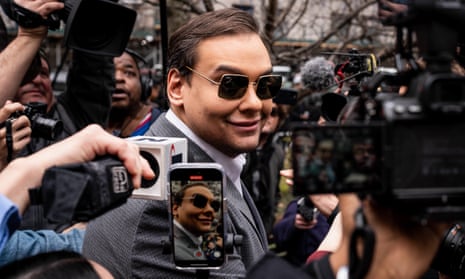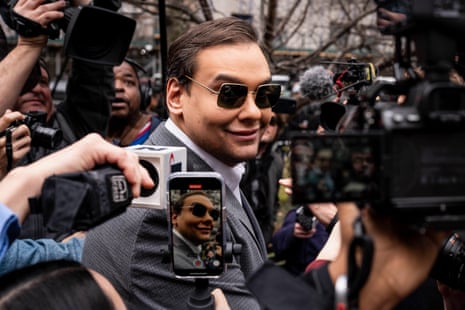The Line City is now expected to have just 300,000 people, down from 1.5 million. Photo: NEOM/AFP via Getty Images
When Saudi Arabia's Crown Prince Mohammed bin Salman Al Saud unveiled plans for his futuristic mirror city in the desert, promising a “civilization revolution.”
Pictures showed a glittering city -a skyscraper 170km long and just 200m wide, stretching to the Red Sea, selling a future in which the world's second-largest oil producer is also a zero-emissions leader.
By the end of the decade, the complex, called The Line, will be home to 1.5 million residents and will “shed light on alternative ways of living,” the crown prince promised.
Less than two years later, those ambitions were sharply scaled back.
By 2030, only 300,000 people are expected to live in this giga project on a 2.4 km long site.
The “unsurprising” blow to MBS's ambitious plans highlights the Saudi government's efforts to attract foreign investors and the country's vulnerability to oil prices, experts say.
“Foreign direct investment investors don't really share the legacy's vision prince of the new Saudi Arabia,” says Torbjörn Soltvedt, chief analyst at risk consultancy Maplecroft.
Line City is just one element of Neom. a 26,500 km² urban complex is being built at the northern tip of the Red Sea.
It is the crown jewel in the Saudi government's Vision 2030 program, the brainchild of MBS to diversify its fossil fuel-dependent economy.
 Construction The 170-kilometer line was intended to give impetus to a “civilization revolution”; in Saudi Arabia Photo: NEOM/AFP via Getty Images
Construction The 170-kilometer line was intended to give impetus to a “civilization revolution”; in Saudi Arabia Photo: NEOM/AFP via Getty Images
But while Saudi Arabia remains one of the most influential players in global oil prices, the Kingdom also finds itself at the mercy of such fluctuations.
Oil has accounted for about three-quarters of government revenues since 2010, according to the International Monetary Fund. This means that the Gulf state's efforts to wean itself off dependence on the commodity depend on how much it sells for and the kindness of strangers or foreign investors.
“The bigger picture is that Saudi Arabia's economy is back to running a budget deficit of around 2% of GDP in 2023,” says James Swanston of Capital Economics.
“This happened when they started to loosen fiscal policies to support the kingdom's non-oil economy and invest in projects such as Neom. To maintain this level of spending, they need a higher oil price.”
Saudi Arabia, which sold nine million barrels of oil a day last year, needs a price of at least $93 to balance its budget, according to according to Swanston.
“Even with the rally we've seen this year, which is caused by the fallout from the war between Israel and Hamas, it's still not at that level,” he adds.
Brent crude rose to $91 on Friday. 17 per barrel, the highest level since October. This was caused by escalating tensions between Iran and Israel, which raised concerns about supplies.
“We've seen before that with Saudi Arabia, the first port of call when they need to cut costs is capital projects – giant projects like Neom, for example. They did the same in 2016 with the King Abdullah Economic City when oil prices collapsed. They cut costs significantly on this project, but it never delivered,” says Swanston.
The King Abdullah Economic City was one of six megaprojects announced in 2005. It was the only one ever launched but failed to attract investment, and by 2018 its population was only 7,000.
Attracting foreign direct investment (FDI) has also become a hurdle that MBS appears to have faced. stumbled with the advent of Neom.
 The futuristic city of Neom is the Crown Jewel of the Saudi Arabian government's 2030 vision. Photo: Peter Hermes Furian/Alami. Photo
The futuristic city of Neom is the Crown Jewel of the Saudi Arabian government's 2030 vision. Photo: Peter Hermes Furian/Alami. Photo
According to Soltvedt, this issue is a recurring problem across all Vision 2030 projects. The government has fallen woefully short of its targets, he adds.
“They received about $11 billion [of FDI] last year, which is about 1% or less of GDP. In fact, the goal was to have 5-6% by 2021. The goal is $100 billion a year by 2030, so they are looking at a 10-fold increase in foreign direct investment,” adds Soltvedt.
Foreign money is being funneled into buying up government debt and equity securities, but MBS has been unable to convince investors to put money directly into its projects.
“There is also a catch-22: investors want to see more evidence of change before they will actually decide to make long-term investments in Saudi Arabia,” says Soltvedt.
“But then Saudi Arabia needs foreign investment.” direct investment to make Vision 2030 truly work. So they are stuck and don't seem to have found a way to ease investors' concerns.”
 The reform-minded crown prince sought to soften the external image of Saudi Arabia. Photo: SPUTNIK/via REUTERS
The reform-minded crown prince sought to soften the external image of Saudi Arabia. Photo: SPUTNIK/via REUTERS
The reform-minded crown prince sought to soften Saudi Arabia's external image, orienting it toward “moderate Islam” and “moderate Islam.” giving women more freedom, such as driving independently and traveling abroad.
However, the country's poor record on human rights abuses continues to deter some investors, with the 2018 murder of Saudi journalist Jamal Khashoggi in Turkey still fresh.
p>
Daily drone and missile strikes by insurgents The Houthis were also not helped until March last year, Soltvedt adds. While the deal with Iran helped end attacks by Yemeni militias backed by Tehran, Israel's war with Hamas has raised new security concerns in the region.
“I think there are still too many unknown variables for investors watching this,” he says.
Western telecoms companies, meanwhile, have been spooked by the Saudi government's plans to use cutting-edge integration of artificial intelligence and facial recognition in Neom.
“The positive thing is that every citizen can be tracked and security forces can know when a crime is happening in real time, making it a super safe place. But obviously this comes at a huge cost when it comes to privacy,” says Soltvedt.
 Hyper-modern integration planned Artificial intelligence and facial recognition in Neom have scared Western firms. Photo: NEOM/AFP via Getty Images
Hyper-modern integration planned Artificial intelligence and facial recognition in Neom have scared Western firms. Photo: NEOM/AFP via Getty Images
As a result, Western firms have been reluctant to get directly involved, while Chinese companies have stepped in.
Many observers also questioned the feasibility of Line City when it was announced.
“Very few people thought that the project as originally conceived could actually be realized. Now that massive downsizing is happening, this will probably be implemented in some form,” says Soltvedt.
The key question will be how many people actually want to live in a city that is one long a skyscraper in the desert with Black Mirror-level surveillance and threats of regional war.
The Saudi Arabian government has never made it clear whether it intends to populate its utopian project with wealthy foreigners or its own indigenous population, although it appears , it was sold to the international community.
“It’s a little like the line from Field of Dreams: If you build it, they will come, and we’ll see later,” Soltvedt says.
A cynic might wonder if any of this will happen.





























































Recent Comments